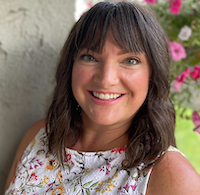



Through collaboration and interactive activities, experience the CITES framework and how it can empower systems change. The CAST Technical Assistance specialists will guide you in designing an action plan. Join us in teams or as an individual to build a collective understanding of where you are, and where you want to go in your journey to build inclusive technology and education systems.
The goal of the Center on Inclusive Technology & Education Systems (CITES) is to empower school districts to create and sustain inclusive technology systems that serve all students, including students with disabilities who require assistive technology or accessible educational materials. To do this work, we are creating and disseminating a framework of evidence-based practices to enhance the successful use of technology by all students. The framework guides the areas outlined in the National Educational Technology Plan (2017) that are: Leadership, Infrastructure, Teaching, Learning, and Assessment, and we can’t forget Family Engagement.
The intentional planning for the use of technology, including assistive technologies and accessible materials and technologies is essential to building inclusive systems. When assistive technology and accessible materials are readily available in the environment and for students who require them, teachers are able to meet the needs of the natural variability in the classroom. The National Center on Accessible Educational Materials for Learning at CAST will provide training and resources that will support the implementation of the CITES framework to begin to build inclusive technology systems.
Outcomes:
1. Session attendees will explore the CITES Framework and how it empowers districts to create and sustain inclusive technology systems that support all students, including students with disabilities who require assistive technology and/or accessible educational materials.
2. Session attendees will engage with the CITES framework practices and AEM Center resources.
3. Session attendees will create action steps to begin to create and/or sustain an inclusive technology ecosystem.
1. Welcome, Orientation, & Introductions to CAST Technical Assistance Centers (15 minutes)
2. Understanding the why- and the how- of building inclusive technology systems. (30 minutes)
2.a Video - Game-Changing Technology and Disability Simulation station rotation
3. Explore the CITES Framework Areas using mini-lessons and interactive choice boards (90 minute):
3.a. Leadership
3.a.a Introduce Leadership Practices & Self-Assessment
Mini-Lesson - Guide to Technology Planning, CITES
Self-Reflection and Action Planning
3.b. Infrastructure
3.b.a Introduce Infrastructure Practices & Self-Assessment: Mini-Lesson - Vetting for Accessibility with P-O-U-R, The AEM Center, Self-Reflection and Action Planning
3.c Teaching & Learning
3.c.a Introduce Teaching & Learning: Mini-Lesson - Designing for Accessibility with SLIDE, The AEM Center, Self-Reflection and Action Planning
3.d Assessment
3.d.a Introduce Assessment Practices and Self-Assessment: Mini-Lesson - Assessment Accessibility Inventory, CITES, Self-Reflection and Action Planning
4. High-level reflection and Looking Ahead & Closing (45 minutes)
4.a Peer review of their individual action plan in a small group
4.b Look ahead to the ISTE conference and identify sessions that support your action-plan
The CITES Framework is based on current research and understanding gained from the project’s Knowledge Development Districts. Knowledge Development districts serve as an exemplar in one or more areas of inclusive technology implementation.
CITES tests and refines the Framework practices in collaboration and co-development with Framework Development Districts. The Framework Development Districts made a long-term commitment with CITES to try out evidence-based practices and provide cyclical feedback on what works to build an inclusive technology ecosystem. What is learned together is informing the development of the CITES Framework.
Additional information on the CITES Framework Development process can be found at https://cites.cast.org/more/cites-framework-development-process